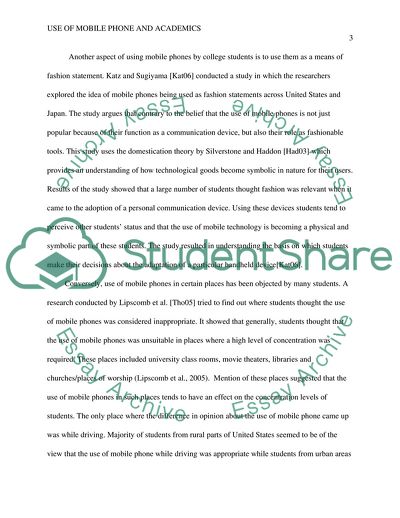Cite this document
(Use of Mobile Phones by College Students and Its Effects on Their Academics Report Example | Topics and Well Written Essays - 1750 words, n.d.)
Use of Mobile Phones by College Students and Its Effects on Their Academics Report Example | Topics and Well Written Essays - 1750 words. https://studentshare.org/education/1804186-2
Use of Mobile Phones by College Students and Its Effects on Their Academics Report Example | Topics and Well Written Essays - 1750 words. https://studentshare.org/education/1804186-2
(Use of Mobile Phones by College Students and Its Effects on Their Academics Report Example | Topics and Well Written Essays - 1750 Words)
Use of Mobile Phones by College Students and Its Effects on Their Academics Report Example | Topics and Well Written Essays - 1750 Words. https://studentshare.org/education/1804186-2.
Use of Mobile Phones by College Students and Its Effects on Their Academics Report Example | Topics and Well Written Essays - 1750 Words. https://studentshare.org/education/1804186-2.
“Use of Mobile Phones by College Students and Its Effects on Their Academics Report Example | Topics and Well Written Essays - 1750 Words”. https://studentshare.org/education/1804186-2.


